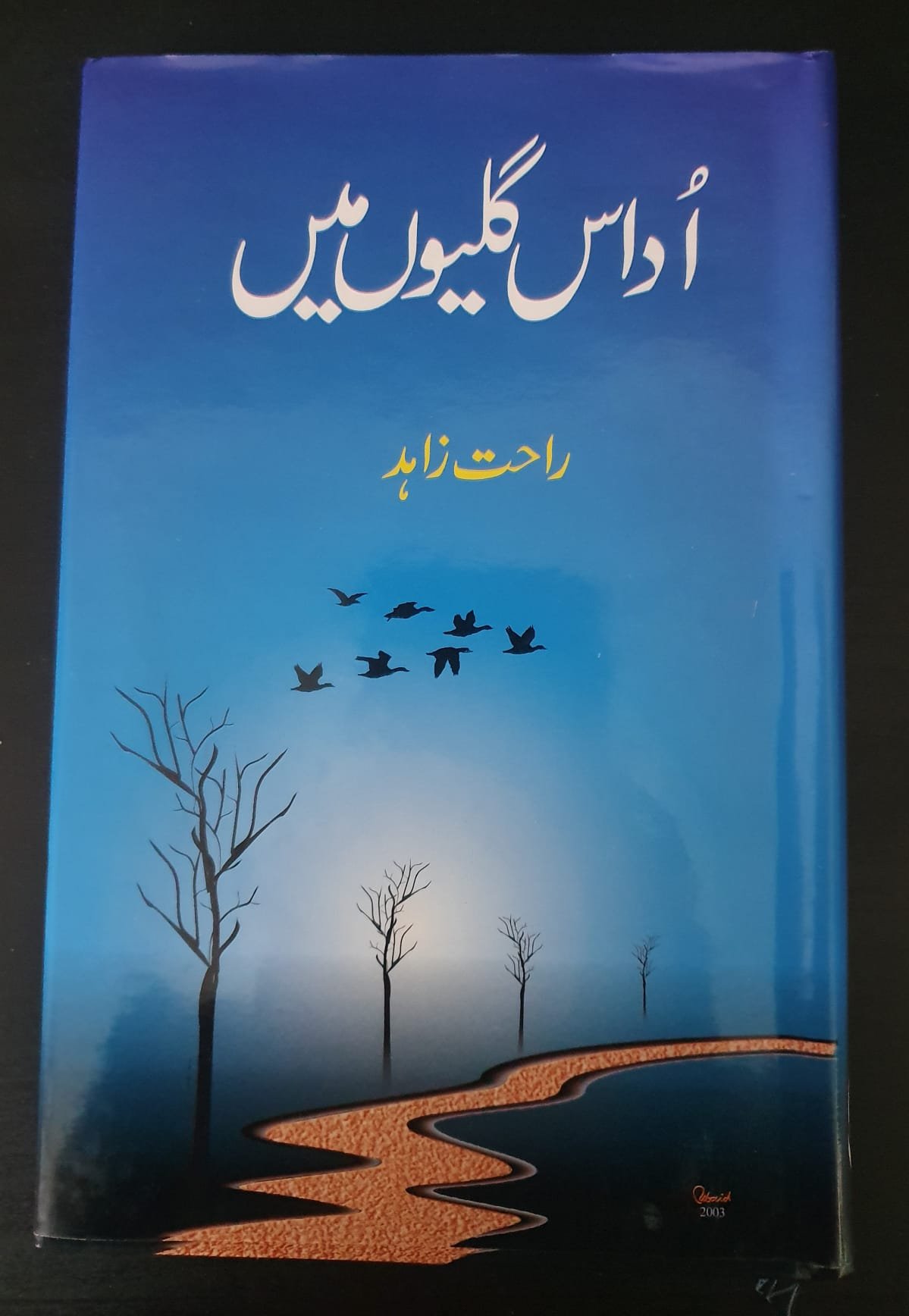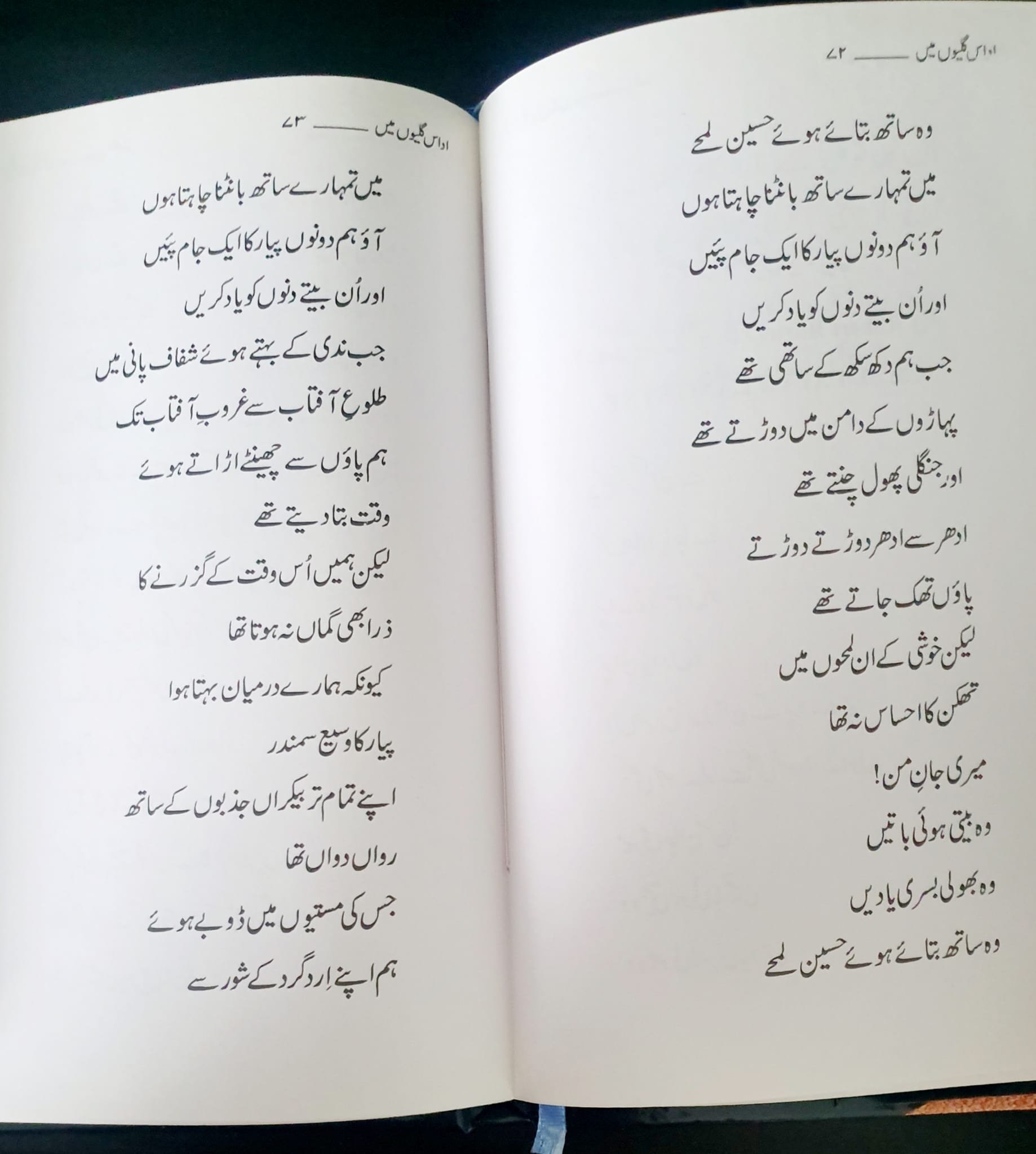Auld Lang Syne: from Scots to Urdu
In acknowledgment of Robert Burns Day, we’re excited to share an Urdu translation of Auld Lang Syne, first translated over two decades ago by Glasgow-based Pakistani poet Rahat Zahid. Now, you can connect with this timeless song in a whole new way.
Cover of Udaas Galion Mein
By Samar Jamal | Photos by Rahat Zahid
For the past few years I’ve spent Hogmanay far from Scotland, yet no matter if I was 400 miles away or a thousand, there has always been a familiar rhythm of a well-loved melody among the bustling crowd gathered to celebrate – Auld Lang Syne. And in the moments when it wasn’t being belted, initiating a sing-along has swung a couple of heads, as many are already familiar with the 1780s song by Scotland’s national poet Robert Burns – also known as Rabbie Burns.
A song so loved that it felt important to share it with Glasgow’s growing South Asian population. So in 2003, Glasgow-based, Pakistani poet, Rahat Zahid, translated Auld Lang Syne into Urdu. Published in her first book, Udaas Galion Mein, among her own works.
Poet, Rahat Zahid
“I met more people related to the literary side when I moved to Scotland from Karachi. Patricia Grant, who was the Ethnic Library Services Officer at Mitchell Library asked if I could translate the poem. At that time it had been translated into 42 languages, but nobody had done it in Urdu.”
Sources show that Burns first wrote Auld Lang Syne in 1788, inspired by an old man singing. While some of the words and the melody appeared in older poetry and songs, it was Burns who brought them both together to create the tune we know today. The words Auld Lang Syne can be translated to “for old times sake”, an ode to friendship, old and new beginnings, nostalgia and togetherness, sung at birthdays, weddings and even funerals.
However, translating from Scots to Urdu did come with its challenges, particularly as the two languages don’t share any similarities, Rahat recalls. Alongside this, despite the Scots language being recognised as an indigenous language of Scotland, it is spoken less commonly than English, which made it harder to source the correct translation.
But translating to Urdu also granted Rahat a vast array of vocabulary that’s not seen in English. In Urdu you can find at least five different words for Love, each encompassing its own depth and nuance:
محبت (mohabbat) – Love (general affection)
عشق (ishq) – Passionate, deep love
پیار (pyaar) – Simple, tender love
عقیدت (aqeedat) – Devotional love (often spiritual)
چاہت (chaahat) – Desire-driven love
Over two decades later, Rahat is working on her fourth book, which will include an additional 20 Burns’ poems, translated to Urdu:“I’m hoping I’ll have it ready by next year, hopefully before the next Robert Burn’s day!”
In the meantime, you can read Auld Lang Syne in Urdu below. Be sure to share it with fellow Urdu readers! To obtain a paper copy, contact the Mitchell Library to reserve Udaas Galion Mein from their archive.
Auld Lang Syne in Urdu
ترجمہ :
یہ کیونکر ممکن ہے کہ بھلا دیا جائے
پرانے رشتوں کو
پرانی یادوں کو
_اس طرح کہ ذہن کے پردے پر
کبھی 'بھولے سے بھی نمودار نہ ہوں
میری جان_من !
وہ 'بھولی _بسری یادیں
وہ ساتھ _بتائے ہوئے حسین لمحے
میں تمھارے ساتھ بانٹنا چاہتا ہوں
آئو ہم دونوں پیار کا ایک جام پیئیں
اور 'ان بیتے دنوں کو یاد کریں
جب ہم دکھ سکھ کے ساتھی تھے
پہاڑوں کے دامن میں دوڑتے تھے
اور جنگلی پھول 'چنتے تھے
_ادھر سے 'ادھر دوڑتے دوڑتے
پائوں تھک جاتے تھے
لیکن خوشی کے 'ان لمحوں میں
تھکن کا احساس نہ تھا
میری جان_من !
وہ بیتی ہوئ باتیں
وہ 'بھولی _بسری یادیں
وہ ساتھ _بتائے ہوئے حسین لمحے
میں تمھارے ساتھ بانٹنا چاہتا ہوں
آئو ہم دونوں پیار کا ایک جام پیئیں
اور 'ان بیتے دنوں کو یاد کریں
جب ندی کے بہتے ہوئے شفاف پانی میں
طلوع_آفتاب سے غروب_آفتاب تک
ہم پائوں سے چھینے 'اڑاتے ہوئے
وقت _بتادیتے تھے
لیکن ہمیں 'اس وقت کے گزرنے کا
ذرا بھی گماں نہ ہوتا تھا
کیونکہ ہمارے درمیان بہتا ہوا
پیار کا وسیع سمندر
اپنے تمام تر بیکراں جزبوں کے ساتھ
رواں دواں تھا
جس کی مستیوں میں ڈوبے ہوئے
ہم اپنے ارد گرد کے شور سے
بے خبر تھے
انجان تھے
میری جان_من !
وہ بیتی ہوئ باتیں
وہ 'بھولی _بسری یادیں
وہ ساتھ _بتائےہوئے حسین لمحے
میں تمھارے ساتھ بانٹنا چاہتا ہوں
آئو ہم دونوں پیار کا ایک جام پیئیں
اور 'ان بیتے دنوں کو یاد کریں
اے میری ہم نفس
اپنا ہاتھ میری طرف بڑھائو
کہ آج کا یہ یادگار جام
ہم 'ان بیتے دنوں کے نام کردیں
جو کبھی لوٹ کر واپس نہ آئیں گے
بس حسین یادیں بن کر
تا ابد ہمارے دلوں میں سمائیں گے
میری جان_من !
وہ _بیتی ہوئ باتیں
وہ 'بھولی _بسری یادیں
وہ ساتھ _بتائے ہوئے حسین لمحے
میں تمھارے ساتھ بانٹنا چاہتا ہوں
آئو ہم دونوں پیار کا ایک جام پیئیں
اور 'ان بیتے دنوں کو یاد کریں




